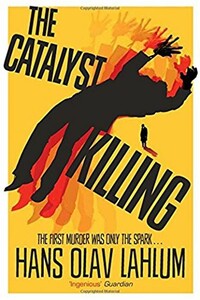Satellite People | страница 45
It was only then that it crossed my mind that I had yet to make a very important phone call – to the commanding officer. It struck me instantly that the case might be taken from me before it had even started. I could under no circumstances wait until the following day for fear that one of my colleagues might hear about the case in the meantime and snatch it from me. So I looked up the commanding officer’s home number on my telephone list and dialled straight away.
Fortunately I caught my boss before he went to bed, and as luck would have it, he was in the better of his two known moods. He listened patiently for ten minutes to my account of the start of this peculiar case, then for another two minutes while I reminded him of my success as head of investigation for last year’s most spectacular murder case. Then to my delight he interrupted me to say that it was his wish that I should also head this murder investigation, certainly until further notice. He added that there might be changes if too many days passed without a breakthrough, and that he would like a short report of the day’s events every evening. He merrily quoted the former foreign minister, Halvdan Koht: ‘That is my opinion, and I must respect it!’ I had heard him say this several times before, but laughed heartily all the same and did not object in any way to his conclusions.
I was in bed by eleven o’clock, as I knew that Monday could well be a long and demanding day. But I lay there unable to sleep until about midnight, but still had not managed to find an answer to the Magdalon Schelderup mystery. I was barely able to pick out one of the guests as a more likely murderer than the others.
DAY THREE: The Box That Contained Something Strange
I
Edvard Rønning Junior was an exceptionally correct young man. He telephoned me at the office, as agreed, at precisely half past eight on Monday, 12 May 1969, and read Magdalon Schelderup’s will to me from heading to signature. It did not take more than a couple of minutes, even though he read at an irritatingly slow speed. The will was dated 6 May the same year and comprised four short paragraphs. After the previous day’s interviews, the content struck me as particularly interesting, although I had to admit that the significance of it remained unclear.
The first paragraph of the will was a sentence to say that the manager Hans Herlofsen, as thanks for his long and loyal service, was to have waived the ‘small amount’ still outstanding on his ‘private loan drawn up in 1949’. There then followed a short sentence to say that ‘the promissory note and associated written material’ had been destroyed.




